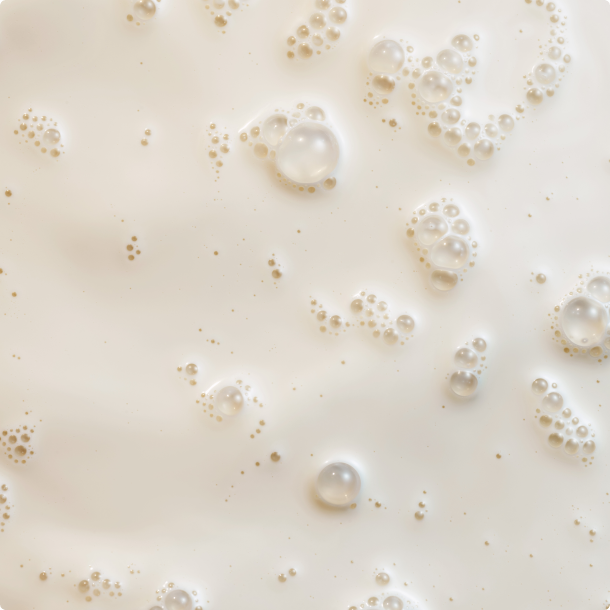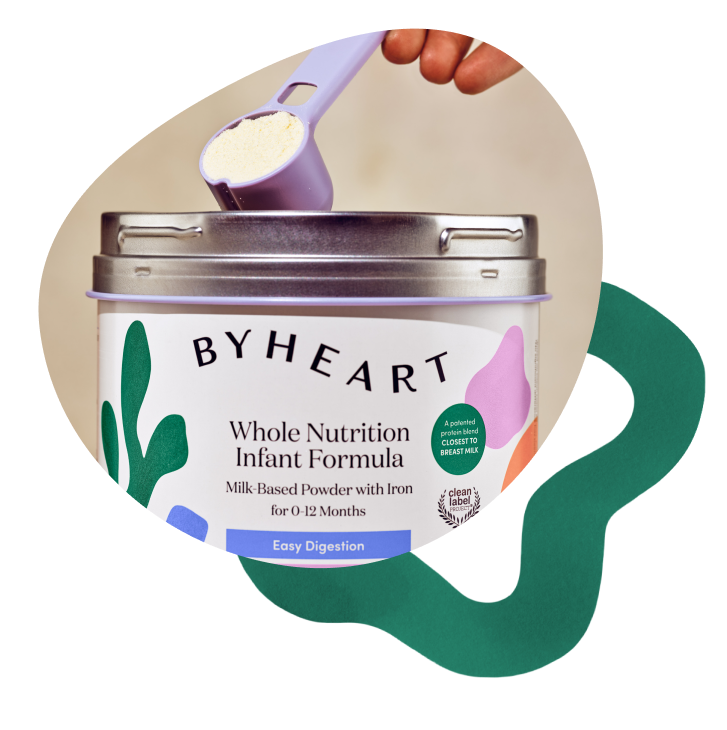You shouldn’t have to have a medical degree to understand infant nutrition.
Reference the information below when talking to your pediatrician about the best feeding decisions for you and your family.

01.
One of the biggest gaps between breast milk and infant formula is protein.
The two most abundant proteins in breast milk are alpha-lactalbumin and lactoferrin. These two proteins are found in significantly lower quantities in cow’s milk, which means many infant formulas have lower levels of these key proteins.
At ByHeart, our closest-to-breast-milk formula includes a patented protein blend that contains both—and we’re the only US-made infant formula with alpha-lac at breast milk levels.

02.
All types of fat are NOT treated equally when it comes to infant formula.
Some fats just work harder than others. In fact, there’s a newly recognized important component of breast milk called the milk fat globule membrane (MFGM for short).
These MFGM are present in both breast milk and cow’s milk (like the organic, grass-fed, whole milk we use in ByHeart!). Research shows that whole milk fats (such as naturally occurring MFGM) play an important role in baby’s brain development and growth.
However, when nonfat milk is used in infant formula, the majority of MFGM is skimmed and lost.

03.
Lactose is a carbohydrate that gives babies energy—in both breast milk and formula.
People are often surprised to learn that lactose is the primary carbohydrate in breast milk—and that it’s associated with benefits beyond providing calories. For example, lactose that is not digested travels to the colon and can act as a prebiotic, supporting the growth of beneficial bacteria.
It's typically very well tolerated by babies and is produced with the support of alpha-lactalbumin. That’s why at ByHeart, we’re proud to be the only US-made infant formula to include alpha-lactalbumin as a unique ingredient along with lactose.

04.
But wait, isn't breastmilk the gold standard?
It’s no secret that breast milk is uniquely designed for babies. Studies have shown that being fed breast milk as an infant is associated with less risk of developing diabetes, hypertension and autoimmune diseases—and with having better cognition, healthier immune systems, and cardiovascular health, as adults.
Breast milk is also often better tolerated than formulas —presumably because it’s designed for ease of digestion for infants. Babies who receive breast milk will generally have softer poops than formula-fed babies.
All of this is why we use breast milk as a blueprint to develop ByHeart infant formula as an alternative for babies who are not consuming breast milk. ByHeart’s formula has a closest-to-breast-milk protein blend, plus certified-clean* ingredients—so you never have to compromise when it comes to feeding your baby.
Discount code copied to clipboard